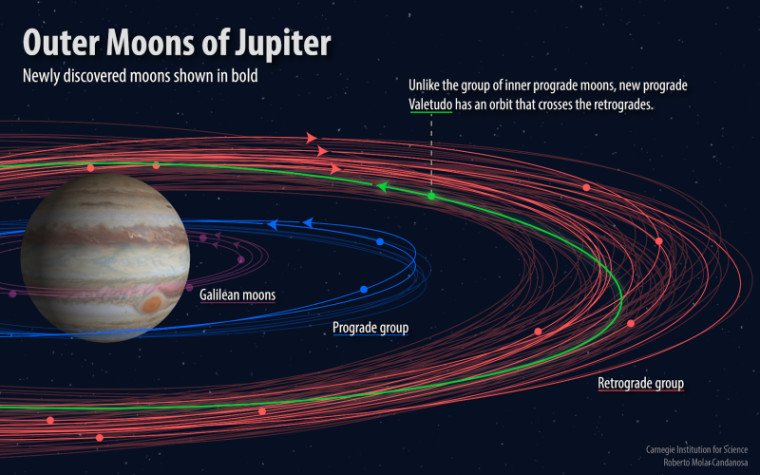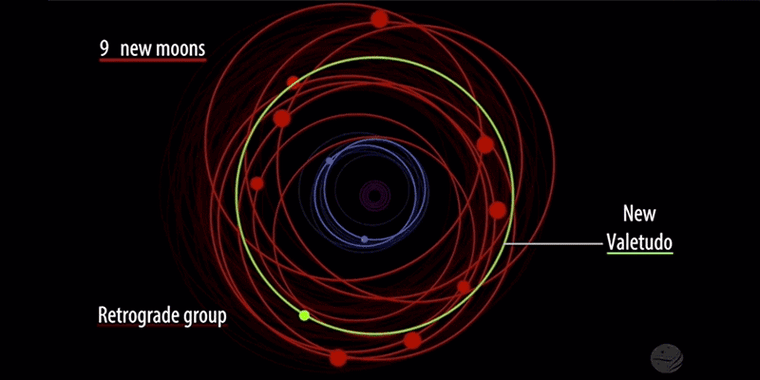Twelve new moons have been discovered orbiting Jupiter, raising the number of natural satellites known to be circling our solar system's biggest planet to 79.
One of the newfound moons, provisionally named "Valetudo" for the Roman goddess of health and hygiene and the great-granddaughter of the god Jupiter, is being called an oddball because it orbits Jupiter in the opposite direction of nearby moons.
"'Valetudo' is like driving down the highway on the wrong side of the road," astronomer Scott S. Sheppard, a staff scientist at the Carnegie Institution for Science in Washington and the leader of the team of astronomers who made the discovery, told NBC News MACH in an email.

The astronomers spied the moons in the spring of 2017 while using a giant telescope in Chile to search for Planet X, a massive and as-yet-undiscovered planet that is believed to orbit the sun far beyond Pluto.
"Jupiter just happened to be in the sky near the search fields where we were looking for extremely distant solar system objects, so we were serendipitously able to look for new moons around Jupiter while at the same time looking for planets at the fringes of our solar system," Sheppard said in a statement.
The discovery, which was confirmed by observations made with several other telescopes, delighted other astronomers.

"I love this result," Jackie Faherty, an astronomer with the American Museum of Natural History in New York who was not part of the team, said in an email. "We've been studying this planet for as long as we have been looking up, and it is still yielding surprises for us. It also reminds me that the question of 'what is out there' is always an open one to be explored."
Tabetha Boyajian, an astronomer at Louisiana State University in Baton Rouge who also was not part of the team, called the discovery of the new moons "cool" in an email. "No surprise to me that it is hoarding more moons," she said of Jupiter, adding that "studying the dynamical history of such objects can tell us a lot about solar system formation."
With a diameter of less than one kilometer, Valetudo is believed to be Jupiter's smallest moon. Ganymede, Jupiter's largest moon and the biggest in the solar system, has a diameter of about 5,300 kilometers (about 3,300 miles). That's bigger than the planet Mercury.
Sheppard said Valetudo's composition was likely "half ice and half rock," adding that the tiny satellite is the "last remnant of a once much larger moon that has been ground to dust from collisions" with other Jovian moons.
Jupiter might yet have more undiscovered moons, Sheppard told Nature. But its total lunar tally already far exceeds that of any other planet — including Saturn, whose 62 confirmed moons make it the runner-up.
WANT MORE STORIES ABOUT THE SOLAR SYSTEM?
- Building blocks of life discovered on Saturn's moon Enceladus
- Total lunar eclipse will turn the moon blood red later this month
- Here's the scientific explanation for that 'alien spaceship' on Mars
